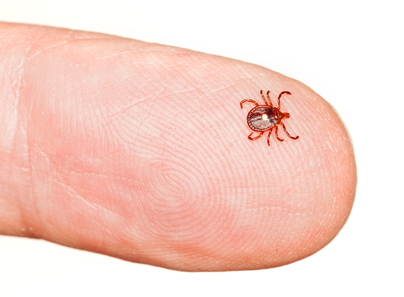Pet-Owners Guide To Tick Control And Prevention
If you love your pets, you want them to be in perfect health all year round. It is necessary, therefore, to be aware of any potential threats to their wellbeing. Whether you own a dog, cat, or guinea pig, you need to be cautious about the presence of ticks. It would be less of a problem if all ticks did was suck your pet’s blood. But they have the potential to transmit diseases. So, you need to be extra cautious.
This post will furnish you with critical information about ticks and the risks they pose to your pets. You’ll be better placed to protect your pets and respond to tick exposure. As a result, your entire family will be safe.
What You Didn’t Know About Ticks
You may be aware that ticks are not insects. If not, then please don’t be on the lookout for a six-legged bug. Ticks are arachnids, in the same category as spiders. It would have been better if all they did was live their lives out in the wild. But they need blood to survive and they get it from any animal. But here’s why you should be extra concerned about them.
#1: Ticks can be active all year long, and don’t always disappear during the winter
Although many people believe that parasites, such as ticks, fleas, and mosquitoes, die off during the winter, they’re more likely lurking in leaf litter, your home, or on your pet, ready to spring forth as soon as temperatures warm up. Deer ticks in particular pop up once the temperature rises above 32 degrees, ready to make a meal out of your pet, and to potentially transmit Lyme disease.
#2: Ticks can be difficult to spot on your pet, but they have favorite hiding places
When people search for ticks on their pets after a trip outdoors, they often look for the fat, bloated adult ticks and, finding none, think their pet is safe. But, a tick that has hitched a ride on your furry pal has yet to feed, and will be much smaller and more difficult to find.
Pets Can Expose You To Tick Bites
Another annoying fact about ticks is that not only do they bite your pets, but they can also target you next. They are blood-thirsty pesky bugs that transmit diseases that could even be life-altering! So, as you take preventive measures against ticks, you’re also protecting yourself.
Can you get ticks from pets? Yes, and according to a study by Jones et al. owning indoor-outdoor pets increases your risk of being bitten by a tick and potentially exposing yourself to various tick-borne diseases. [1]
Out of the 1,546 homes with pets, 88.1% used some form of tick control on their pets. Yet, 20% still found ticks on their pets, 31.4% reported ticks crawling on household members, and 19.2% found ticks attached to household members during the study period, writes Jones from the Maryland Department of Health and Mental Hygiene. ..
Overall, pet-owning households reportedly had a 1.83 times greater risk of finding ticks crawling on household members and a 1.49 times greater risk of having ticks attached to a member.
For households which found ticks on their pets, the risk of a human tick encounter was increased significantly, with a 2.69 times greater risk of a tick crawling on a household member and a 2.5 greater risk of a tick attachment.












